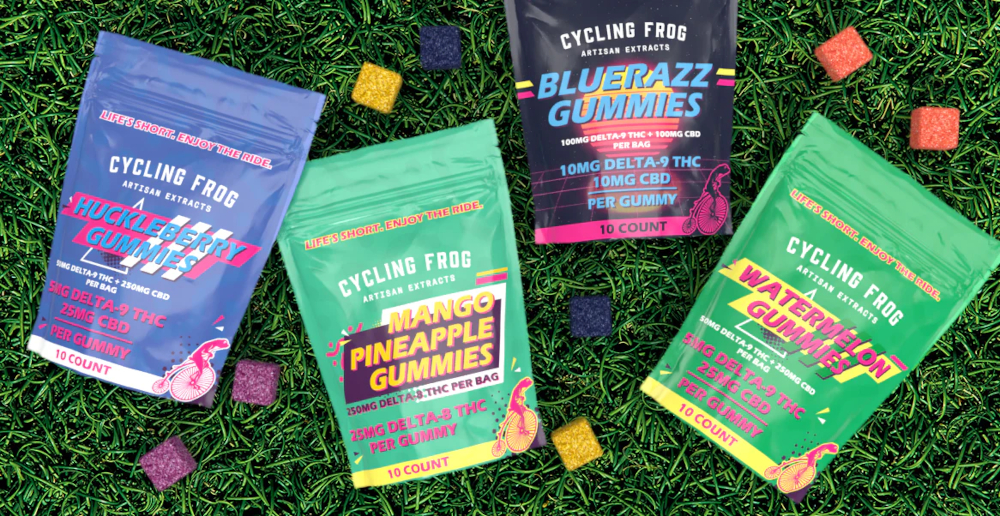A crackdown on New York’s illicit cannabis trade has had an “immediate and catastrophic effect” on the market for CBD and other cannabinoids, which has “essentially halted,” a group of hemp companies charge in a lawsuit against the state.
Claiming enforcement of new rules governing hemp-derived cannabinoid products cost them “millions of dollars in losses,” ten state-licensed hemp operators are suing the New York Cannabis Control Board (CCB) and Office of Cannabis Management (OCM) in U.S. District Court for the Southern District of New York over raids under revised hemp regulations released in November.
Another crushing blow
The upheaval in New York is a second crushing blow to the U.S. CBD market this year after the Florida State Legislature passed a restrictive law against intoxicating synthetic cannabinoids that also threatens the CBD extract market.
New York is the third biggest CBD market among U.S. states, with 2024 sales projected to be $1.5 billion, according to data provider Statista, which ranks California the biggest, at $3.3 billion, and Florida the second biggest at $1.8 billion.
Legal skirmishing
The New York stakeholders are pressing their advantage after the state Supreme Court ruled in their favor in an earlier case, allowing them to overcome strict emergency measures put in place by the state last August. The measures struck down by the court late last year were intended to spur enforcement of rules adopted in 2016 that prohibit the sale and possession of all such compounds.
After the Supreme Court ruled against the state agencies in November, the CCB and OCM issued further regulatory updates. It is those most recently revised rules and their enforcement that are challenged in the latest complaint.
While the lawsuit, filed March 1, 2024, identifies the plaintiffs as “hemp companies,” most appear to be CBD producers, distributors and sellers, while some are obviously trading in hemp products that contain synthetically produced compounds such as delta-8 THC that in concentrated form can give users a “high.”
History
When New York regulators first addressed synthetic cannabinoids, they put rules in place that prohibited the sale and possession of all such compounds, which are made by putting hemp-derived CBD through a process in the lab. The rules made large-scale sales a felony and allowed for revocation of retail licenses held by re-sellers caught selling them. OCM adopted final rules that banned smokable hemp and delta-8 THC products in 2021.
But a gray market for intoxicating products containing high concentrations of delta-8 THC and other hemp-derived substances quickly developed due to a conflict between federal and state law and a lack of enforcement.
The synthetic products, sold as alternatives to those containing the more common delta-9 THC that occurs in high levels in marijuana, emerged after the 2018 Farm Bill legalized industrial hemp and its downstream products across the U.S. But the federal law created a loophole by not accounting for synthetically produced psychoactive products that can be made from hemp flowers – the source of CBD.
CBD/THC ratio introduced
North Fork Distribution, Inc. (dba Cycling Frog) – a company based in Washington state that makes “hemp-derived THC and CBD products,” according to its website – sued in New York state court over the revised regulations that went into effect last August, leading to the Supreme Court case that invalidated those rules in November. The court found the state failed to prove that the beverage maker’s hemp-derived THC and CBD products “misled or harmed” consumers.

Cycling Frog, a Washington state company that makes products containing CBD and hemp-derived intoxicants, is a leading litigant in New York.
State cannabis officials revisited the situation immediately after that ruling, approving a very similar set of rules with a “significant change” regarding allowable levels of delta-9 THC, which occurs in industrial hemp in trace amounts. State rules require all hemp-based products to have “no more than 0.3% total delta-9 THC concentration.” But the suit contends that state officials also imposed a ratio of CBD to THC, setting the benchmark at 15:1. That immediately made an estimated 75% products on the market illegal when the rules went into effect in November, the plaintiffs claim.
Second lawsuit
That change drew the most recent, second lawsuit, to which North Fork/Cycling Frog is also a party. The plaintiffs warn that the latest rules “drastically limit(s) the products available for market” and could push consumers “into the illicit market.”
Some also say they were targeted with raids that “were arbitrary, capricious and politically motivated as a means to crack down on New York’s rampant illegal cannabis and hemp retail market.” Those raids caused the hemp companies losses in the millions of dollars, and forced some of them to close down, the lawsuit alleges.
“In order for Petitioners to comply with the regulations, they will need to effectively destroy all non-compliant products for sale and wait for manufacturers to change the basic formulations or all of their products, which could take months if not years to perfect, as well as costing petitioners thousands of dollars,” according to the lawsuit.
The lawsuit requests a court order that prohibits state officials from enforcing the latest hemp rules, establishment of an appeals process for hemp companies to retrieve goods seized by the state, and punitive and compensatory damages of at least $1 million.
Roster of plaintiffs
In addition to North Fork/Cycling Frog, the plaintiffs in the suit, filed March 1 in the New York federal court, are:
- Raven’s Landing LLC dba Dr. Nature RX (seller of CBD, THC, delta-8, delta-9, HHC);
- Hemped NYC, LLC; (retailer);
- Hemped NYC on Orchard LLC (retailer);
- Hidden Hemp Corp. (retailer);
- Gasko & Meyer Inc. (drinks distributor);
- Sarene Craft Beer distributors, LLC (drinks distributor);
- Windy Hill 312 LLC dba Windy Hill CBD and Wellness (CBD retailer);
- The Green Room (CBD retailer);
- Rebel Rabbit (Drinks containing delta-9).
Plaintiffs’ claims
In specific claims by the defendants, who say they were raided “without warrants or justification:”
- Hidden Hemp, The Green Room, and Windy Hill CBD and Wellness said they had products seized by the state last year without notice of any official violation by the OCM or any other enforcement agency.
- Cycling Frog claimed that its losses due to the revised rules topped $1 million.
- New York beverage distributors Sarene Craft, Gasko & Meyer, and Rebel Rabbit said in the suit their respective sales of hemp-infused beverages took a nosedive after the new rules went into effect. Sarene Craft estimated its losses at $900,000, Gasko & Meyer pinned their losses at $770,000, and Rebel Rabbit reported $220,000 in lost revenue.
- The OCM seized $150,000 worth of goods from one of Hidden Hemp’s four stores, and was raided in Brooklyn last March but never provided the owner with a way to appeal the seizure or prove his business was legitimate. Losses to date total $1.2 million and the owner has had to close two of his four shops.
- The Green Room, a licensed hemp retailer, had its location in the West Village of New York City raided twice last year without proper notice. OCM agents seized $18,000 worth of goods, and the company ultimately suffered losses totaling $200,000, forcing it to close both of its shops.
- A Windy Hill CBD and Wellness shop was raided in August, suffering damage of its reputation because customers took photos during the raid which made the rounds on social media, leading to a drop in business and losses of approximately $65,000.
- Raven’s Landing was forced to remove more than 80% of its products from shelves, with losses of approximately $600,000.

